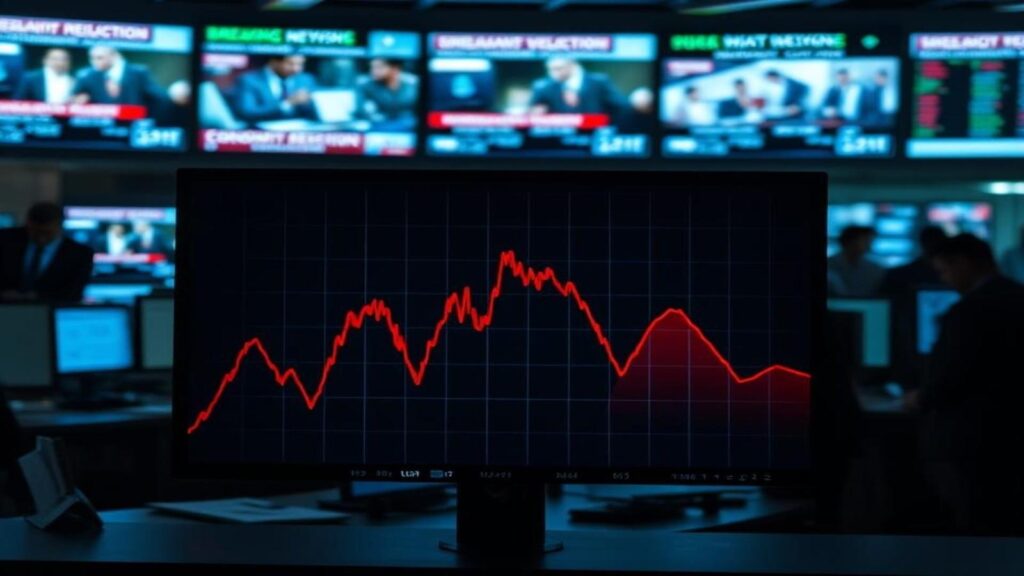By Qaiser Nawab
The recent upheaval in the US stock market has sent shockwaves through the financial world. This turbulence stems from a combination of escalating tariff wars, erratic policy decisions, and looming recession indicators. Together, these factors have created a climate of uncertainty, eroding investor confidence and destabilizing global markets.
Tariff Wars: A Catalyst for Market Disquiet
The current administration’s aggressive trade policies, particularly the imposition of substantial tariffs on key trading partners such as China, Canada, and Mexico, were intended to bolster domestic industries. However, these measures have backfired, sparking retaliatory actions and intensifying global trade tensions.
On March 3, 2025, the announcement of increased tariffs led to a precipitous decline in the U.S. stock market. The S&P 500 index plummeted by 1.8%, while the Nasdaq-100 index saw a sharper fall of 2.6%. By March 6, the S&P 500 had relinquished nearly all its gains accumulated since November 2024. This downturn underscores the market’s sensitivity to trade-related uncertainties and the broader implications for global economic health.
The Economist characterized these tariffs as “aggressive and erratic,” cautioning that they could inflict lasting damage both domestically and internationally. Economists have expressed concerns that the current trade war could be more costly than previous ones, potentially leading to higher borrowing rates and reduced economic growth.
Policy Inconsistencies: Fueling Market Panic
Beyond the tangible impacts of tariffs, inconsistent and unpredictable economic policies have further destabilized the markets. Frequent shifts in policy direction and contradictory statements in the US have sown confusion among investors. Over a recent weekend, President Trump’s remarks about a “painful transition period” in the economy transformed existing concerns into full-blown panic, leading to a sharp market drop.
Such unpredictability undermines the foundational trust that investors place in the stability of economic governance. When policy directions appear erratic, it becomes challenging for businesses and investors to make informed decisions, leading to reduced investment and hiring. This environment of uncertainty can stifle economic growth and contribute to market downturns.
Recession Indicators: The Looming Economic Slowdown
Emerging indicators of a potential recession have added another layer of concern. The U.S. economy, which had been experiencing robust growth, is now showing signs of slowing down. Economic forecasters have raised the probability of a recession, with major banks like JPMorgan Chase and Goldman Sachs adjusting their forecasts to reflect heightened risks.
Investor sentiment has been further dampened by these developments. The stock market has experienced significant sell-offs, reflecting growing fears of an economic downturn. This negative feedback loop, where declining markets lead to reduced consumer and business confidence, can exacerbate economic slowdowns, making recessions more likely.
The recent Black Monday serves as a stark reminder of the fragile nature of financial markets in the face of erratic policies and global economic tensions. The confluence of tariff wars, inconsistent policymaking, and recession indicators has created a perfect storm, eroding investor confidence and sparking fears of an economic downturn. While stock markets have historically rebounded from crises, the broader implications of these challenges require careful navigation to prevent long-term damage.
One of the most pressing concerns is the erosion of global trade stability due to ongoing tariff disputes. Trade wars create inefficiencies in supply chains, increase costs for businesses and consumers, and lead to retaliatory actions that further destabilize economies. To restore market confidence, the U.S. must prioritize diplomatic engagement, ensuring that trade policies are aligned with economic sustainability rather than short-term political gains.
Additionally, economic governance must become more predictable and transparent. When businesses and investors lack clarity on policy directions, they hesitate to invest, hire, or expand operations. A well-communicated economic strategy, backed by data-driven decisions, can mitigate uncertainties and foster stability.

About Author:
Mr. Qaiser Nawab is the Chairman of the Belt and Road Initiative for Sustainable Development BRISD and can be reached at qaisernawab098@gmail.com



